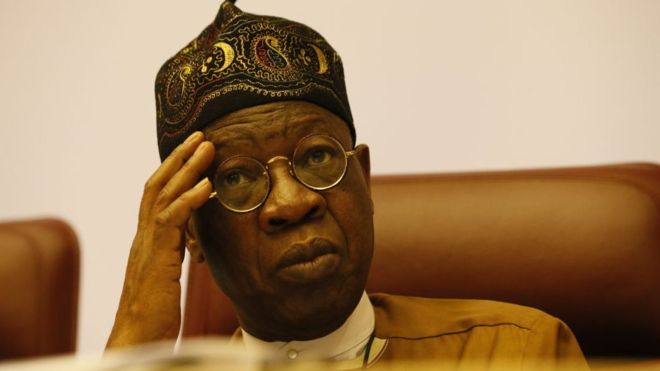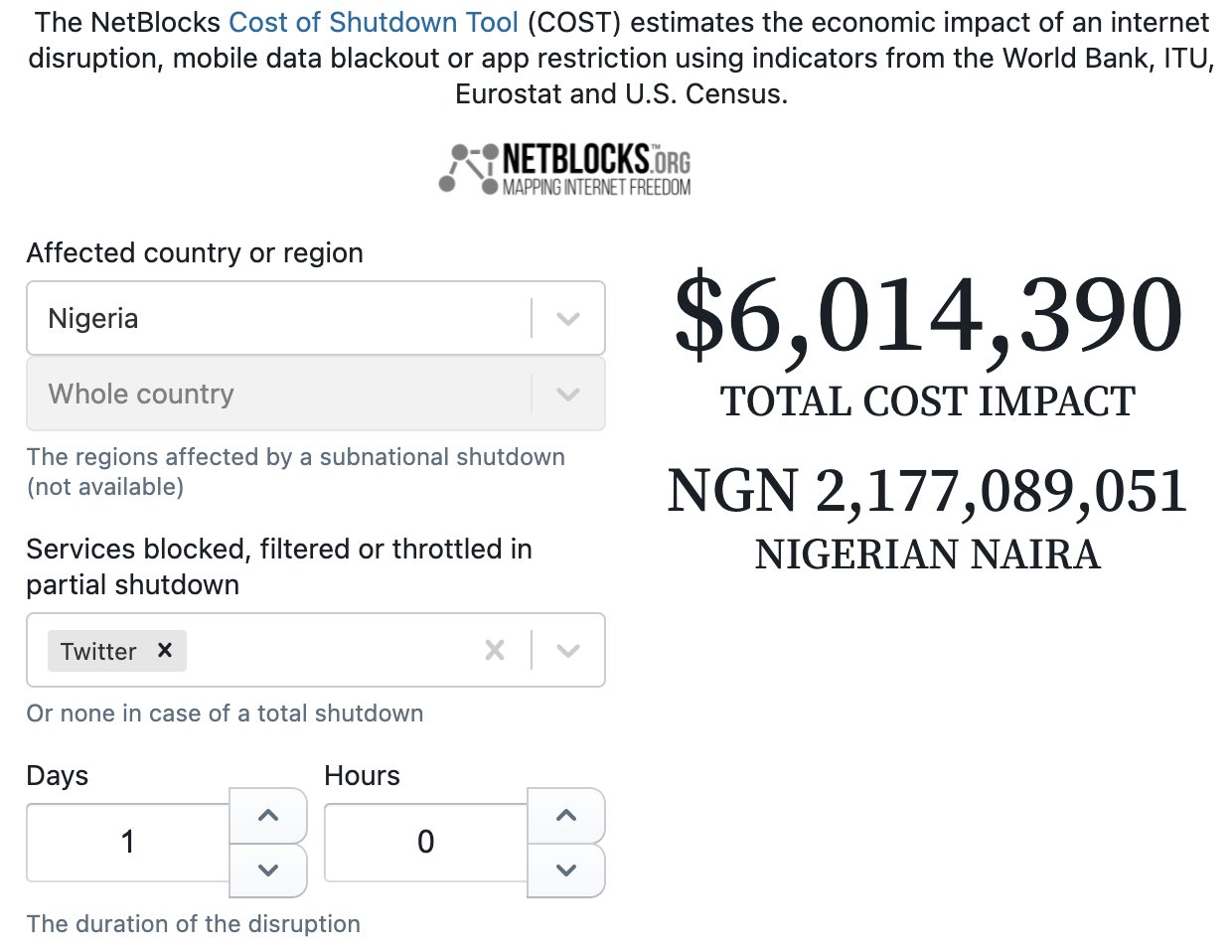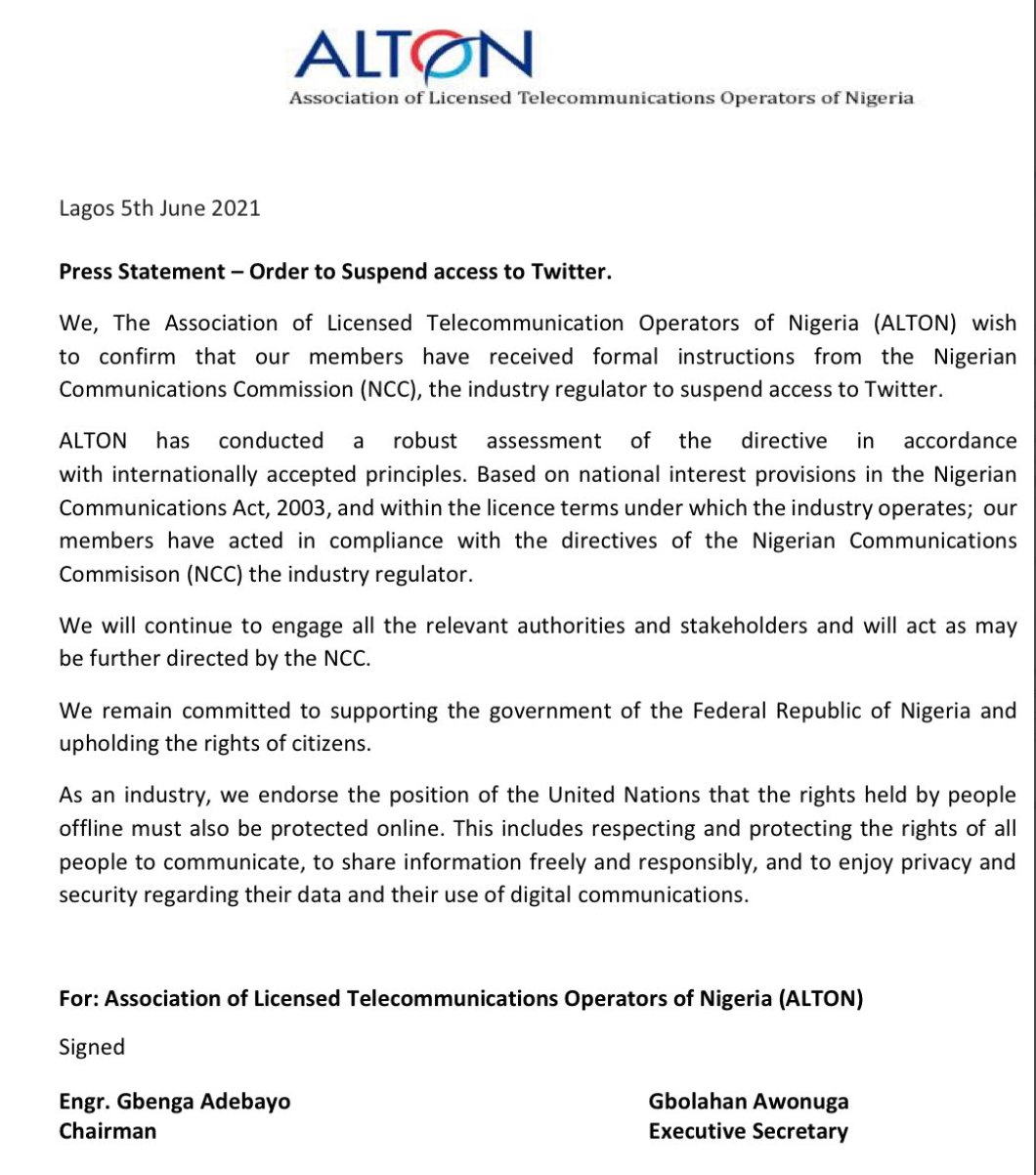What the new OTT license regulations may mean for free speech in Nigeria
The Nigerian government has suspended Twitter. It is also seeking to regulate other information channels over the internet. What are the implications of these policies in Nigeria? Will this lead to state sanctioned censorship of news and information?

The Federal Government has announced and implemented the suspension of Twitter in Nigeria. But beyond the suspension, many social commentators have highlighted a more worrisome directive; the announcement also ordered the Nigerian Broadcasting Corporation (NBC) to “commence the process of licensing all over the top media and social media operations in Nigeria”.
What does this licensing regulation mean?
Over the top media refers to any medium of delivering content via the internet, independent of traditional broadcast, cable and satellite networks. Essentially, they distribute content by circumventing cable, broadcast, and satellite television platforms, the types of companies that traditionally act as controllers or distributors of such content. They are thus able to directly offer content to consumers via the internet, without the need for traditional gatekeepers.
Now, it is not just video streaming services like Netflix, Hulu and Youtube, over the top platforms allow news to be shared swiftly, seamlessly and virally all over the internet. These over the top news platforms include messenger apps like Whatsapp and Telegram, blogs, online news channels, social media news feeds and so on.
By forcefully trying to regulate such a critical information and content space, the Nigerian government may effectively be able to control or stop the sharing and distribution of critical news and information, including photos, videos, sound and other forms of communication.
Since the very nature of over the top channels allow them to bypass traditional mediums of distribution directly under the control of the Nigerian Broadcasting Corporation, the government may effectively have the power to bring them under its control, to dictate what they can or cannot distribute through license concessions. If taken to the extreme, it has the potential to give authorities the power to ban certain over the top channels by refusing a grant of license, effectively shutting down its operations within Nigeria.
Has this been done before?
It used to be commonplace during the Nigerian military era for soldiers to storm tv stations and media houses, shutting them down and even arresting workers. These arrests and shutdowns were done with little or no regard to due process or laws. Muhammadu Buhari, the current president, had also passed the controversial Decree 4 of 1984 to shut down newspapers, radio and television stations, in response to criticisms of his administration.
It now appears this regulatory high handedness has crossed over to the civilian era. Recently, the NBC had threatened to impose a ban and fine of N5m on Channels TV, a leading news network in Nigeria over its “breach of the broadcasting code”. Channels TV was made to publicly apologize to NBC before the suspension would be lifted.
The Anti social media bill can be regarded as the first real legislative step aimed at controlling the spread of information via social media. The bill was introduced in November 2019 to “criminalise the use of social media in peddling false or malicious information”. It immediately received strong negative reaction and opposition from civil society groups, social media commentators and opposition parties.
The EndSars protests saw the federal government step up its campaign to enforce regulation or outright suspension of Twitter, apparently due to its importance in mobilizing citizens towards national causes. Although not enacted, some provisions in the social media bill can be seen in this new directive.
The access blocking order provision in the bill is a good example. The provision requires mobile network providers and internet service providers to disable access for Nigerian users to a certain location on the internet on the grounds of perpetuating falsehoods. The suspension of Twitter seems to have similarities with the access blocking order, as it was purportedly in response to Twitter’s alleged “suspicious activities”.
How this bill affects Nigerians
To have a better understanding of the devastating effects the implementation of such a policy might have, let us take a look at Singapore. The social media law of Singapore bears striking similarities to the social media bill the Nigerian National Assembly sought to enact, with some allegations that it even plagiarised the law.
The Singapore law allows government authorities to respond to online content and news deemed false, unverifiable or “capable of leading to unrest” through a process of enforcing links to fact-checking statements, censorship of websites, social media platforms, and in some cases pursuing criminal charges.
The far reaching powers this law gives the authorities cannot be overstated. The July 2020 Singaporean election saw the greatest number of social media regulations per month since the law's introduction. It was used to “fact check” and “correct” several publications by institutions such as the National University of Singapore Society and leading newspaper The Online Citizen. It is no wonder that Singapore is ranked in the bottom 10 in the World Press Freedom Index.
In Nigeria, the situation is more worrisome. A law was not even enacted, what happened was an announcement by a minister suspending a social media network and directing the NBC to begin licensing the activities of all media, news and communication channels over the internet. Nigeria is already ranked 120 in world press freedom, and it will likely only sink further if these policies are implemented. It has the potential to
- Stifle spread of news information
- Allow authorities control the spread of information, censor content and direct the news
- Gain a further stranglehold on the press
- Allow authorities gain access to private and confidential information about citizens on the internet
What are the economic implications?
By 2025, the internet economy has the potential to contribute an estimated $180 billion to Africa’s economy, and is also estimated to grow to as much as $712 billion by 2050. In Nigeria, the internet economy has a projected value of $35 billion by 2025.
Nigeria has one of the biggest economies in Africa, the continent’s largest population and is among the largest number of online marketplaces. Twitter, and indeed social media has facilitated an entire internet industry, thriving, growing and empowering millions of Nigerians.
The professionals in this new economy include
- Youtubers
- Digital marketers
- Freelancers
- Influencers
- Podcasters
- Online vendors
- Dropshippers
- Social media managers and so many others
They have all been empowered by social media. Their core customer base and clients are on Twitter and social media, and for a government to place a ban on such a critical emerging economy will only stifle growth and economic empowerment.

According to Paradigm Initiative, since the suspension of Twitter in Nigeria, the country has lost $6m or N2.1bn based on its Cost of Shutdown Tool estimation. Even more worrisome, this loss continues at N90m every hour. These are very worrying numbers.
Apart from this, investor panic, capital flight, economic shocks and breakdown of economic activities, especially on services that rely on social media, are also direct after effects of this suspension.
What is the Legality of this directive?
Only a written law passed by the national assembly can be called a crime. When a minister unilaterly announces the suspension of Twitter based on its “suspicious activities” with no backing law, then proceeds to order the licensing of all OTT platforms, then there is a real problem. It gets even more problematic when the Attorney General directs law enforcement to arrest citizens found to be using Twitter. It begs the question of which law the Attorney General relied on to effect such a directive.
This is a clear indication of the breakdown of democratic structures and the rule of law. Ironically, Nigeria has passed the Freedom of Information Act, so a ministry directive of such a magnitude should surely be in contravention of the law.
On its part, the Association of Licensed Telecommunications Operators of Nigeria (ALTON), a trade body for telcos in Nigeria, confirmed the implementation of the Twitter suspension, stating
“We wish to confirm that our members have received formal instructions from the Nigerian Communications Commission (NCC), the industry regulator, to suspend access to Twitter. Based on the national interest provision in the Nigerian Communications Act, 2003, and within the license terms under which the industry operates; our members have acted in compliance with the directives of the Nigerian Communications Commission…”
ALTON further says it “endorses the position of the United Nations that the rights held by people offline must also be protected online. This includes respecting and protecting the rights of all people to communicate, to share information freely and responsibly…”.

It is not certain what the last part means, as it appears inconsequential seeing that the suspension has already been implemented. For now, citizens can only watch on. It is unclear what the authorities will do next, but by all indications, Twitter may not be the only social media platform the government seeks to regulate.
If one thing is certain, it is that internet shutdowns in Africa do not achieve any practical solutions. There is no doubt that this move is a step backward. Nigeria’s fragile democracy is under severe pressure with the actions of policymakers; freedom of information is a critical pillar of democracy. Any derogation from it is a step towards dictatorship. Millions of Nigerians depend on the internet and social media for information, news, source of livelihood and a means to connect and grow beyond the borders of sovereign states. It may appear that we may not have completely severed ties with the military era after all.







Comments ()